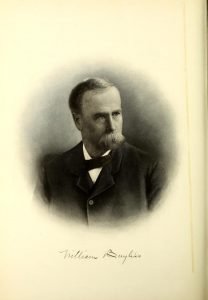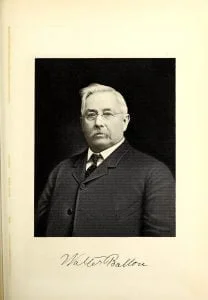Some Descendants of Lawrence Wilkinson of Providence, RI
Lawrence Wilkinson, the first of the race here in New England, was born in Lanchester, County of Durham, England, a son of William Wilkinson by his wife Mary, sister of Sir John Conyers, Bart., and the grandson of Lawrence Wilkinson, of Harpley House, Durham. He was a loyalist, and at the surrender of Newcastle, 1644, was taken prisoner by the Parliamentary and Scotch troops. At this time he held a lieutenant’s commission. He was deprived of his property, and his estates sequestered by order of Parliament. After having obtained special permission from Lord Fairfax, chief commander of the Parliamentary army, he embarked with his wife and child for New England, leaving, according to Somerby, in 1652. Arriving at Providence he signed the civil compact and received a gift of twenty-five acres of land and commenced his pioneer life. He was admitted as one of the original “Proprietors of Providence.” He soon acquired a large real estate, and held a prominent position among his fellow citizens. He was frequently chosen to fill offices of trust in the infant colony; was elected a member of the Legislature in 1659 and subsequently. He was an active business man. He participated in the Indian wars. He lived in his adopted country nearly half a century. His death occurred in 1692.



